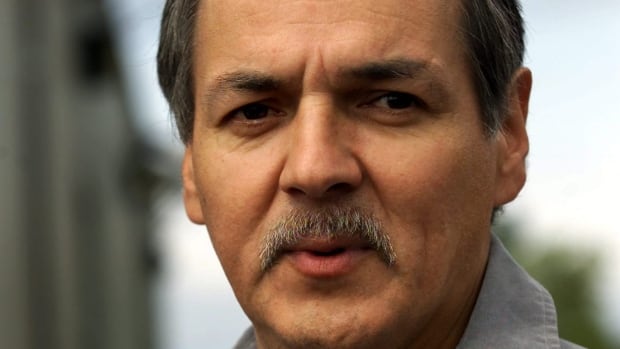On the 25th anniversary of the Marshall Decision — a landmark court ruling that affirmed First Nations’ treaty right to fish, hunt and gather in pursuit of a moderate livelihood — some say there’s still a long way to go to properly uphold it.
The Supreme Court ruling involved Donald Marshall Jr., a Mi’kmaw man from Membertou, N.S., who was arrested and charged with selling eels without a licence outside the Department of Fisheries and Oceans (DFO) regulated season in August 1993.
On Sept. 17, 1999, the court ruled that Marshall was justified in doing so in pursuit of a moderate livelihood, under the Peace and Friendship Treaties signed in the 1700s. What became known as the Marshall Decision affected about three dozen Mi’kmaq and Wolastoqiyik First Nations in the Maritimes and the Gaspé region of Quebec.
But the court did not clearly define “moderate livelihood,” even in a subsequent clarification. In the decades since, this has contributed to tensions between First Nations fishers, the commercial industry and DFO.
“If things are being properly upheld, we wouldn’t have hostilities on the water or at the wharfs and there would be clear plans for the resource management,” professor L. Jane McMillan told CBC Radio’s Information Morning Halifax.
McMillan, the chair of the anthropology department at St. Francis Xavier University and a former Canada Research Chair, was Marshall’s fishing partner. Marshall died in 2009.
She said the court ruling has been transformative, giving Mi’kmaq the tools to self-govern resource management and implement their treaty rights. Some Mi’kmaq bands have set up self-regulated moderate livelihood fisheries in recent years.
It has also fuelled more knowledge of treaty rights across Mi’kma’ki, something that wasn’t as prevalent before the Marshall Decision, McMillan said.
“I think there’s been a great deal of progress, but there are lots of areas that really need to be addressed for rights to be fully implemented,” she said.
‘Fought a hard fight’
Put simply, McMillan said Marshall was a Mi’kmaw man who enjoyed eel fishing.
He found solace on the water, she said, after being wrongly convicted of murder and spending 11 years in prison. It was a long journey for him to return to the court and “face such an adversarial system for exercising his treaty rights.”
“But he had the tenacity, he had the resilience. Fortunately, he had the strength. And from 1993 to 1999, he fought a hard fight.”
Kerry Prosper, an elder-in-residence at St. FX, was chief of Paqtnkek Mi’kmaw Nation when Marshall was arrested. Marshall had been fishing in Pomquet Harbour near Paqtnkek with permission from the band when he was arrested.
He remembers feeling relieved when the decision came through. Now, at the 25th anniversary, he’s feeling hopeful and optimistic.

Prosper said it’s given him the chance to reflect on how important it is for treaty rights to be recognized and an idea of what needs to happen in the future.
“We’ve gone without recognition for such a long time, and I think the honeymoon is over,” Prosper said.
“We really have to begin thinking about managing our own right, managing ourselves and really looking towards a real co-op management system for treaty fisheries and non-native commercial fisheries.
“We need to begin looking at how we can actually share the resource without harming each other.”
He said working with non-Indigenous commercial fishers and governments will be key to conserve resources and ensure they’re still available to future generations.
Looking back at the last 25 years, McMillan said Marshall would be proud of what has been accomplished.
“I think Donald Marshall would, as he’s always done, call for unity in the water. Call for unity in the Mi’kmaw Nation and I believe he would be, I think, excited by the prospect of all of the people that are coming together to honour and respect his legacy,” she said.
“I think he could hold his head up in terms of the legacy that he has brought to all of us in Canada in terms of advancing treaty rights, recognition and Indigenous rights.”


